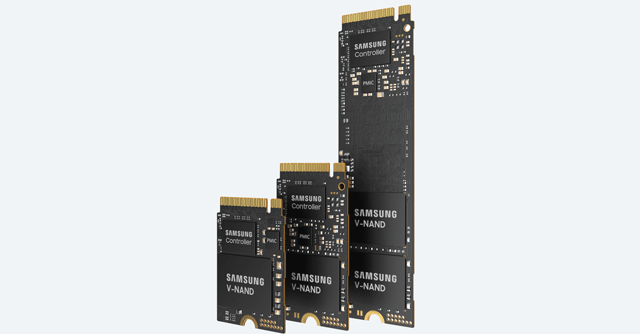
Samsung unveils new PCIe 4.0 SSD with 5nm controller, V-NAND architecture


South Korean electronics firm Samsung today announced the PCIe 4.0 NVMe solid-state drive (SSD), meant for gaming desktops and laptops — called the PM9C1a. The SSD has a built-in 5nm controller for reading and writing data, and is built using the company’s in-house V-NAND stacked architecture. It will be available in 256GB, 512GB and 1TB storage capacities in the M.2 form factor that is available in 30mm, 42mm and 80mm thickness.
The company claims that its highest sequential read/write speeds are 6,000MBps and 5,600MBps, respectively. This is 1.6x and 1.8x faster than its predecessor, the PM9B1 SSD.
Further, PM9C1a provides random read/write rates of up to 900K input/output operations (IOPS) and 1,000K IOPS, respectively. The new version is 70% more power efficient than its predecessor, according to Samsung, which means it can handle more intensive workloads while consuming less power.

The new SSD uses 10% less power when the computer is idle, according to Samsung. Which in turn should help save some battery on notebook PCs, though it’s unclear how much of a difference it will make, especially if used on devices powered by ARM chips.
The PM9C1a also supports Device Identifier Composition Engine (DICE), which is a security standard supported by most devices and data centres. It was created by global standards body, the Trusted Computing Group and generates cryptographic keys inside the SSD that can be used for authentication before any changes can be made to its firmware.
“Our new PM9C1a SSD will deliver a robust combination of superior performance, greater power efficiency and increased security, which are the qualities that matter most to PC users,” said Yong Ho Song, Executive Vice President of Memory Solution Product and Development at Samsung Electronics.

